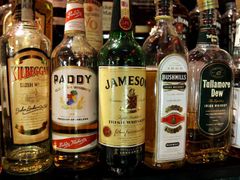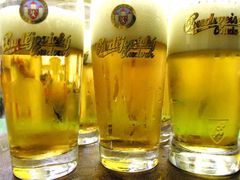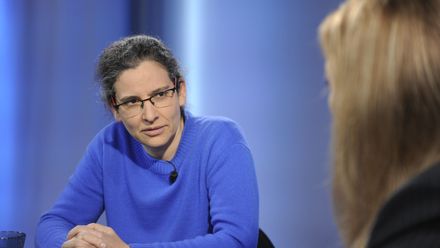Prague - He was born in the city of Pilsen, which gave the world its most popular beer, in a country that has the world's highest consumption of the alcoholic beverage per capita. Yet, he devoted most of his life to the fight against excessive drinking and literally made history along the way.
Jaroslav Skála, arguably the most famous Czech anti-alcohol crusader, might have made more enemies than friends when he invented what is believed to be the world´s first sobering-up detention facility in 1951, but such is the fate of many of his kind and there is no doubt his motives were pure.
He has reportedly never touched alcohol since the year 1951. He died last Sunday at the age of 91.
For his contribution to the society and the authorship of more than 140 scientific publications, Skála was awarded with the Distinguished Service Medal in 2002.
The birth of a legend
Rejected by several health care institutions after he graduated from medical college, he took up a job at a psychiatric clinic in Prague. In 1946 he was sent to a Brussels international conference about alcoholism, which eventually turned out to be a determining moment of his life.
Inspired by an example of the US Alcoholics Anonymous, he began searching for ways to fight addiction to alcohol, considered increasingly dangerous phenomenon in a society not equipped to deal with the problem.
Back in Czechoslovakia, he introduced what some describe as harsh treatments based on emetine, a substance producing cramps and nausea after alcohol is consumed.
He founded a rehabilitation center in Prague which remained under his management till his retirement in 1982.
His biggest claim to fame came in 1951, when he invented a short-term rehabilitation center known as "záchytka" (detention center) in Czech, reportedly the first such facility in the world.
As he explained in his very last interview, given to Týden weekly newsmagazine, the purpose of the stations was protective, not repressive.
"Its aim was to prevent any harm of the patient and determine whether he or she had a problem with alcohol," he said.
Exploited by the communists (and the capitalists)
From time to time, however, the communist regime exploited Skála's invention by having inconvenient persons detained.
On the eve of an oncoming high-profile state visit, for example, a local man perceived as troublemaker by the officials was preventively restrained for about two or three days, the self-proclamied "alcohologist" recounted in the interview. The regime was simply terrified by a possibility of their visitor being abused in the street.
During its first 30 years of service, Prague's sobering-up station treated over 180,000 people. Other facilities in the country treated over 1,000,000 people. During its peak in Czechoslovakia, there were over 63 sobering-up stations, says Wikipedia.
Today, the legendary Apolinářská street center has evolved into a modern health care facility, where a one night stay, not covered by medical insurance, costs around 3,000 Czech crowns.






